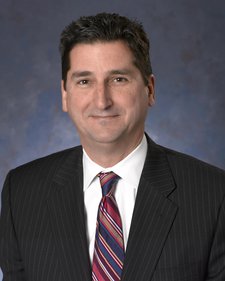
By Zoe Han, MarketWatch
Nov. 2, 2022
With many economists predicting a recession in 2023, it’s time to take stock. Are you planning on a winter vacation? Do you want to buy that suit or dress for the office holiday party? Are you thinking of trading up your old jalopy? Is it a good time to accept that dinner invitation to a restaurant that will cost you $100 for one meal?

iStock image
Inflation in the U.S. was 8.2% in September, hovering at a 40-decade high. In the U.K, the rise in the cost of living was 10.1% year-over-year in September. Eurozone inflation soared by 10.7% in October over a year ago, the highest in the zone’s 23-year history. In Singapore, it was 7.5%. In China, inflation was 2.8% in September.
Global prices started rising during the Covid-19 pandemic, taking many economists by surprise as lockdowns disrupted supply chains. They increased further after Russia invaded Ukraine earlier this year, and sanctions that adversely hit the supply of agricultural products and energy.
A strong dollar is worth more when exchanged for other currencies, which makes it cheaper for Americans to buy imported goods—and more expensive for foreign companies to sell goods to the U.S. Some analysts also say the strong dollar has, in some cases, exacerbated existing headwinds facing U.S. stocks this year.
Prices are eating into people’s budgets. The share of workers who say they are living paycheck-to-paycheck in 2022 has surged among middle- to high-income earners—63% and 49%, respectively—up from 57% and 38% a year ago, according to a recent survey of almost 4,000 workers by online loan specialist LendingTree.
What now? Be realistic about your goals—and be prepared to make hard decisions to achieve them, said William Thompson, a financial planner at Valor Wealth Partners based in Boston, Mass. “That’s not saying that we have to totally abandon our goals. It just may take a bit more work or a bit more intentionality,” he said.
Here are five questions to ask financial advisors right now:
1. Do I have a long-term financial plan?
Jennifer Kang, financial planner and founder of JWK Financial in New York, said everyone should ask, “Do I have a proper plan in place?” Such a plan relates big decisions, including whether you intend on staying in your job, assessing your timeline for purchasing a home, and/or when you would like to retire, she said.
But there are things we can all do. Here are some strategic steps to help keep your finances on track: chip away at debt, fine-tune your spending, curb impulse buys, build your emergency savings, talk to your landlord about rent, and avoid being preyed upon by for-profit debt-settlement companies.
Don’t forget the basics: “I make X amount, I spend X amount and I save X amount. This is me and I’m happy with it,” Kang said. “If you’ve already had a plan in place, that shouldn’t shift too much.” But revisit these questions if your income changes, if you lose or change jobs, and/or if your mortgage/rent goes up.
2. How does inflation impact my cash flow?
What does inflation mean to you? It depends on your circumstances. Inflation is good if you’re on a fixed-rate mortgage, and locked in at a low rate—in that case, your mortgage repayments just got cheaper in real terms. However, it’s bad if your landlord is raising your rent, and you face rising student-debt and food prices.
Alex Borgardts, financial advisor and co-founder of Next Bloom Wealth in Kansas City, Mo., calls this your “personal inflation rate.” That is, everyone’s relationship to rising prices is unique. If your energy bill increases, and you have little opportunity to save money on electricity, cut expenses elsewhere.
Inflation shrinks your purchasing power. For that reason, your bank balance is worth less in “real terms” when adjusted for those higher prices, Alonso Rodriguez Segarra, CEO of Advise Financial based in Coral Gables, Fla., wrote in a recent column. How you use that money is more critical than two years ago.
How diversified is my portfolio?
How much exposure does your portfolio have to different sectors and markets, and how much have you invested domestically versus internationally? MarketWatch columnist Philip van Doorn suggests 27 stocks that can give you a more diversified portfolio than the S&P 500—and that, he writes, is a key advantage right now.
Your tolerance for risk is key: “2022 has been a great time for people to take a step back and reanalyze their comfort with risk,” Borgardts said. “It’s easy during good market years to get comfortable and not pay close attention. When we feel [the impact of] more volatile markets, it’s easy to get emotional and make changes.”
As of Wednesday, the Dow Jones Industrial Average is down 10% or by more than 3,600 points so far this year. Excessive inflation reduces the value of investors’ cash, and it encourages the Federal Reserve to fight inflation—with aggressive interest-rate increases—and that can weigh on both stock and bond prices.
4. Do I have any emergency savings?
Maintain an emergency fund that can be accessed at a moment’s notice, in case of job loss, a medical emergency, or some other unforeseen event, Segarra added. Similarly, Borgardts said people should check in with their financial planners about the amount of cash in their investment accounts. (Oftentimes, investment managers will keep a small portion of the client’s portfolio in cash.)
“Excess savings”—the amount households saved versus what they would have saved had it not been for the pandemic—was $1.7 trillion in mid-2022. But that does not impact all Americans equally: $1.35 trillion of that was held by the top and third income quartiles. In the second quarter of 2021, excess savings were $2.26 trillion when many people were flush with cash from government benefits.
Meanwhile, the personal savings rate—savings as a percentage of disposable income—fell to 3.3% in the third quarter from 3.4% in the prior quarter, the government said last week, the lowest level since the Great Recession. Economists have not fully tabulated the coronavirus pandemic’s impact on savings, but these figures have put the topic of ready cash front and center.
5. Should I change course now or not?
If you do not qualify for President Biden’s federal student-loan forgiveness, check whether you can afford to pay back your student loans now, Kang said. As interest rates increase, repayments on variable-rate loans will also rise. For that reason, it’s a good time to pay off personal loans and outstanding credit-card debt.
But Thompson advises against any sudden moves. “You may not necessarily stay with the current allocation, but don’t exit altogether,” he told MarketWatch. At the end of the day, playing a long-term game is the key to success in the stock market, Kang added. And that means not making any changes based on fear.
Sometimes, the best action is no action. Riding out the bearish market and economic uncertainty by not checking your portfolio every five minutes can be a blessing. “Doing nothing is not a bad thing,” Kang said. “Just because something is going on, it doesn’t necessarily mean that you have to make changes.”
This article originally appeared on MarketWatch.
Write to editors@barrons.com
This Barron's article was legally licensed by AdvisorStream.
Copyright 2020 Dow Jones & Company, Inc. All Rights Reserved.









